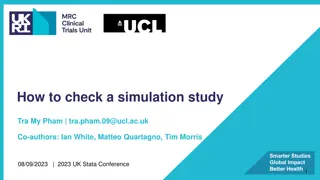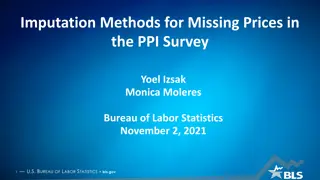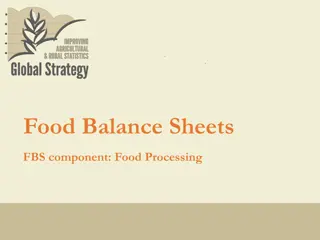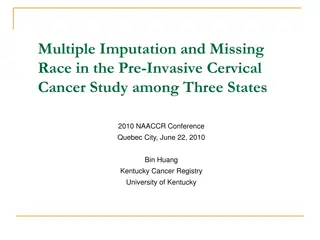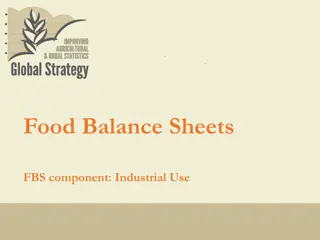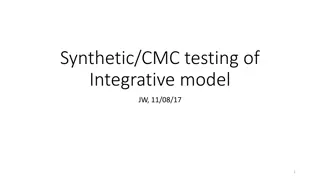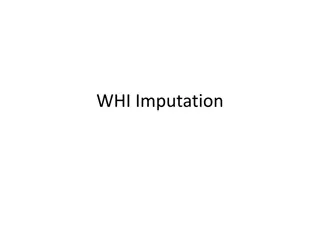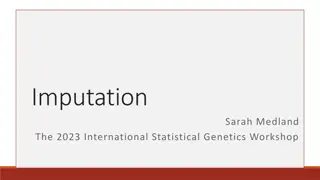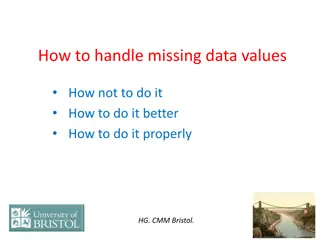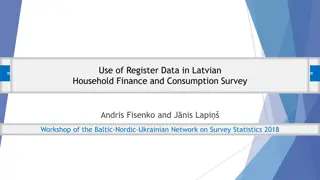Generalizing Research on Older Adults in Seattle Integrated Health System
This research project led by Laura Gibbons focuses on generalizing findings from the Adult Changes in Thought (ACT) study in a Seattle integrated health delivery system to all older adults in the region. By comparing ACT participants with the current Seattle area population and using survey weights
1 views • 29 slides
Understanding Defamation Laws in Indian Penal Code 1860 Section 499
Indian Penal Code Section 499 defines defamation as making or publishing any imputation concerning a person intending harm or knowing it will harm their reputation. The section includes explanations regarding imputations towards deceased individuals, companies, and ironic expressions. To constitute
0 views • 10 slides
How to Check a Simulation Study: Methods and Considerations
Simulation studies are often used to evaluate statistical methods and study power, but they can sometimes produce misleading results. This work discusses strategies to assess and improve the quality of simulation studies, drawing on experiences and considerations outlined in relevant literature. A s
0 views • 31 slides
Advanced Imputation Methods for Missing Prices in PPI Survey
Explore the innovative techniques for handling missing prices in the Producer Price Index (PPI) survey conducted by the U.S. Bureau of Labor Statistics. The article delves into different imputation methods such as Cell Mean Imputation, Random Forest, Amelia, MICE Predictive Mean Matching, MI Predict
0 views • 22 slides
Understanding Food Processing Data for Balance Sheets
Food processing data is crucial for balance sheets, necessitating the consideration of official and alternative sources, as well as approaches for imputation and estimation. Industrial output surveys, agricultural production surveys, and data from commodity organizations play key roles in determinin
0 views • 11 slides
Addressing Missing Race Data in Pre-Invasive Cervical Cancer Study
Study discusses missing race data in pre-invasive cervical cancer cases among three states and the impact on analysis. It highlights the concept of multiple imputation to handle missing data effectively, providing insights into data mechanisms and methods to treat missing values.
0 views • 25 slides
Understanding Industrial Use of Agricultural Products
This session explores industrial uses of agricultural products, focusing on data sources and methodologies for imputation and estimation. It emphasizes the importance of consulting industry experts and official data sources to capture industrial utilization accurately. The session also highlights th
0 views • 11 slides
Understanding Seed Use Data: Imputation and Estimation Methods
Explore different data sources for seed use, learn recommended approaches for imputation and estimation, understand definitions, and delve into the significance of seeding rates in calculating total seed use quantities.
0 views • 24 slides
Overview of Synthetic Models in Transcriptional Data Analysis
This content showcases various synthetic models for analyzing transcriptome data, including integrative models, trait prediction, and deep Boltzmann machines. It explores the generation of synthetic transcriptome data and the training processes involved in these models. The use of Restricted Boltzma
0 views • 14 slides
Understanding Food Balance Sheets: Data Sources and Imputation
Explore the world of food balance sheets, focusing on data sources for feed and recommended approaches for imputation and estimation. Discover definitions, official and alternative data sources, and the importance of cross-checking feed production with livestock demands.
0 views • 19 slides
Genomic Imputation Pipeline Overview
This document outlines a genomic imputation pipeline for multiple GWAS studies using reference panels such as 1000 Genomes Phase I data. It covers steps like data matching, phasing, and imputation using tools like Beagle and Minimac. The expected output includes imputed dosages and quality measures.
0 views • 6 slides
Understanding Imputation in Statistical Genetics Workshop
Exploring the concept and reasons for imputation, this workshop delves into fine mapping, genotyping, and more through detailed explanations and visual aids. Topics cover the process of imputation, data genotyping, QC, references, and the practical application of imputation in genetic studies.
0 views • 39 slides
Understanding China's Economic Growth Through Macroeconomics Analysis
Explore the intricate details of China's GDP evolution, real GDP growth, and the concepts of intermediate macroeconomics. Dive into the circular flow, GDP imputation, deflators, and more as you analyze China's economic performance from 1953 to 2022. Uncover the interplay between nominal and real GDP
0 views • 58 slides
Efficient Techniques for Handling Missing Data Values
Explore effective methods for handling missing data values, including what not to do and how to improve imputation techniques. Discover the drawbacks of common approaches and learn better strategies to enhance accuracy and reduce bias in data analysis.
0 views • 14 slides
Insights into Latvian Household Finance and Consumption Survey
The Latvian Household Finance and Consumption Survey gathers micro-level structural data on households' assets, liabilities, economic decisions, demographics, employment, and more. This joint project includes 18 European countries and involves sampling, data collection, editing, and imputation at th
0 views • 25 slides
Risk Management and Contingency Planning in Canadian Census Program
Effective risk management and contingency planning were vital for the Canadian Census of Population Program in December 2022. Prior to operations, risks were identified, evaluated, and mitigation plans were established. During operations, a virtual operational command center was utilized due to COVI
0 views • 7 slides
Challenges and Solutions in Scaling GWAS for Bioinformaticians
Exploring the challenges of scaling Genome Wide Association Studies (GWAS) to millions of samples, covering topics like FastPCA, TeraStructure, and imputation with Eagle. The session delves into working with summary statistics, exemplified by PrediXan journal discussion, and outlines concepts and ex
0 views • 46 slides


